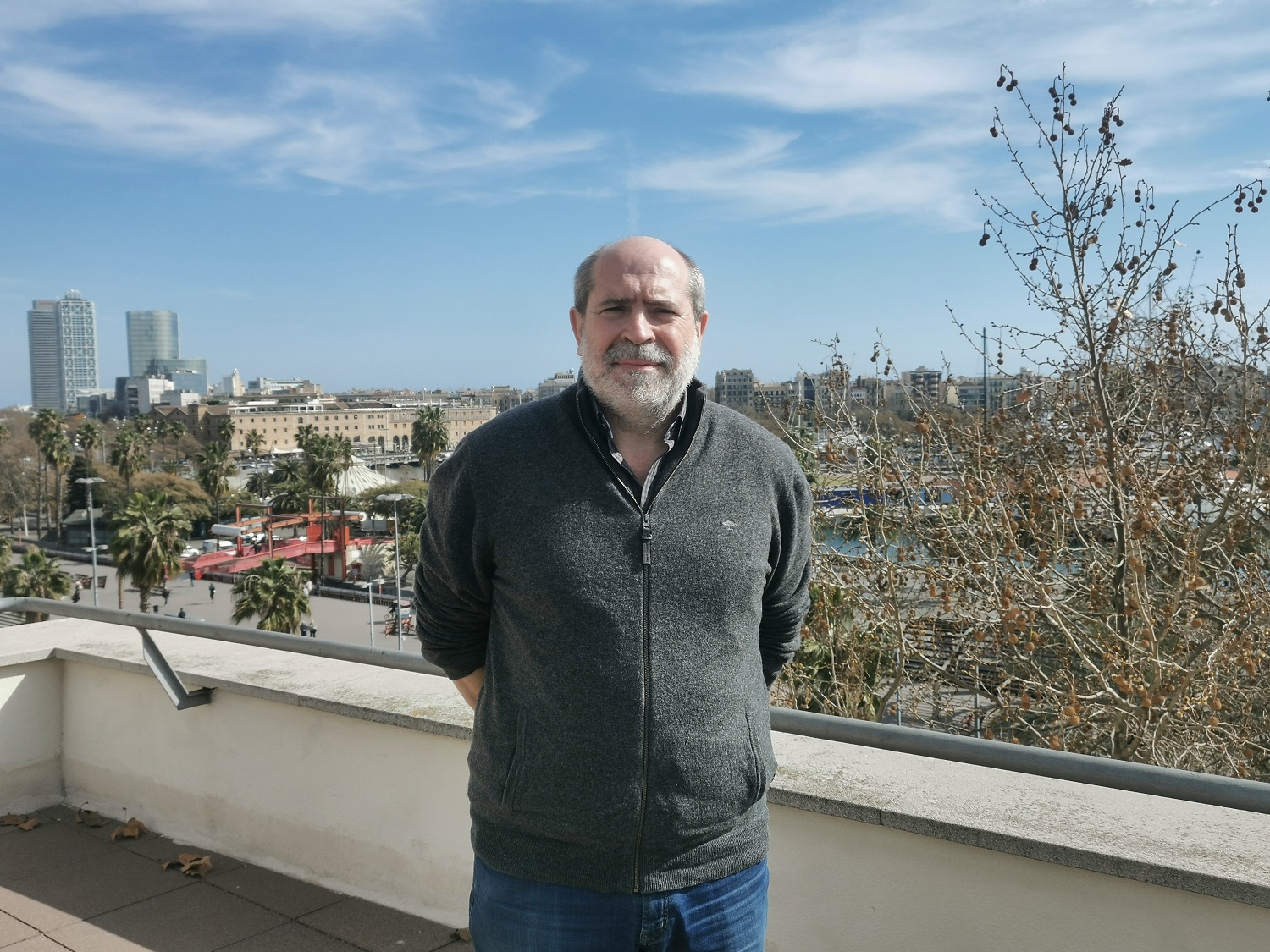“The enormous research capacity that exists in each and every one of the University’s academic fields is channelled increasingly better”
“The enormous research capacity that exists in each and every one of the University’s academic fields is channelled increasingly better”
“The enormous research capacity that exists in each and every one of the University’s academic fields is channelled increasingly better”
Enric Vallduví, vicerector de Recerca de la UPF

Enric Vallduví, a tenured lecturer with the Department of Translation and Language Sciences, has been leading the University’s office of the vice-rector for research since 2017, first with rector Jaume Casals, and currently with rector Oriol Amat at the helm. On the basis of his position and experience, he analyses the results achieved by UPF under the European Union’s Horizon 2020 programme, which has now terminated.
—What is your overall assessment of UPF’s results in the Horizon 2020 framework programme? Coming third for harnessing EU funds in Catalonia and sixth in Spain involves a lot of work behind the scenes...
The results are very good. Plus, you have to take the size of the institutions into account. UPF is rather small compared to the others. The results, seen in relative terms, are even more praiseworthy. And, indeed, behind the data is the capacity, effort and dedication of all of the people who conduct research and all of the ones who support them.
—How important is the success rate of 18% achieved by UPF, quite a bit higher than the mean for Catalonia, Spain and Europe?
Every application generated represents an important investment of time and effort and so a higher success rate than the mean involves a saving for all involved. This rate, moreover, helps us to be able to compete with larger institutions; for small ones like UPF, a good success rate is an especially important factor.
“For small institutions like UPF, a good success rate is an especially important factor”
—Over the years of the programme there has been a positive evolution as regards the number of projects obtained. Has UPF had to adjust the works to do so?
Some years ago, UPF decided to give priority to harnessing European resources for research. There’s a layer of expertise now of some considerable thickness. This is so regarding the researchers and the research groups to which they belong, but also with regard to the promotors of research who advise the researchers in the “pre-award” phase. This knowledge is absolutely essential.
—Has it been possible to diversify the projects obtained by departments?
Some departments have greatly increased the number of projects obtained and funds harnessed compared to the previous initiative, the 7th Framework Programme (FP7). This pleases me especially. The huge research capacity in each and every one of the University’s academic fields is channelled increasingly better. Various factors come into play: the proactiveness and the interest of the researchers and the department heads; increased proximity between researchers and the Research Service, with offices on campus and the presence at these offices of support for research in the “pre-award” phase, and also, of course, the policies governing attracting and retaining research talent and the promotion of research at UPF.
—By pillars, UPF continues to stand out in pillar I, Excellent Science, especially for the programmes of the European Research Council and Marie Sklodowska-Curie Actions...
The ERC projects are the result of a thorough selection process and represent cutting edge research on an international scale. Most ERC projects are well endowed, they create jobs and generate a dynamic research environment, which leads to further activity and projects. The Marie Sklodowska-Curie (MSCA) programme, among other things, allows UPF to incorporate young PhDs with interesting projects that, for a specific length of time, integrate into the existing groups and units. They are people who are in a particularly active phase of their careers and often act as a catalyst. Both programmes are essential to the University.
“The European Research Council and Marie Sklodowska-Curie programmes are essential to the University”
—Would the ideal thing have been to improve in other pillars, or does UPF feel at ease in this leading position for Excellent Science? Does this bias need correcting?
UPF is renowned for its success in pillar I and that is most satisfactory, due to the quality, uniqueness and visibility of the programmes included. However, we must always try to improve, and there’s some way to go in pillars II and III. UPF has been working for some time to foster innovation and knowledge transfer, and this has intensified recently with the creation of the office of the vice-rector for Knowledge Transfer. Successes have just begun and that should enable achieving better results in pillar III, which focuses on innovation. There is also some way to go in pillar II of world challenges and competitiveness, particularly with regard to clusters such as health, culture and the digital world. Here the planetary wellbeing initiative and, in this context, the boost given to interdisciplinary academic activity, which adheres to the defining features of the social challenges pillar. Future prospects are positive.
“There will be a need for decided actions in respect of talent attraction and retention and with regard to strengthening research and transfer support structures”
—In the new stage starting now, under the Horizon Europe 2021-2027 programme, which are UPF’s main challenges?
UPF keeps its leading position, but retaining this position is a challenge in itself. Behind each euro of funding harnessed there’s a lot more work than some years ago. Moreover, the institutions in our environment -most larger universities or organizations whose structural flexibility is greater than that of public universities- are doing so increasingly better. It is more difficult for UPF to improve than for other institutions, but we don’t give anything up for lost. There will be a need for decided actions in respect of talent attraction and retention and with regard to strengthening research and transfer support structures, but the aim is to continue the upward trend for European research.
